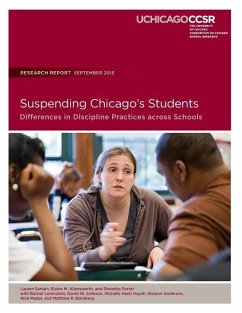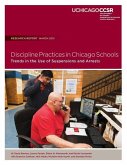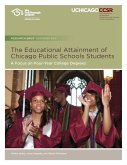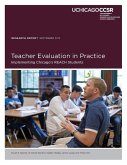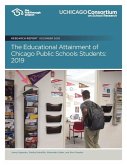Students' risk of suspension is more strongly determined by which school they attend than by their backgrounds-including their race, gender or income. A subset of Chicago schools-about a quarter of high schools and 10 percent of schools with middle grades-have very high suspension rates, and almost all of these schools predominantly serve African American students. These schools' students come from the poorest neighborhoods with the lowest incoming achievement; many have been victims of abuse or neglect. At high-suspending high schools, about half of students received a suspension in the 2013-14 school year. This report examines reasons for racial and gender disparities in suspension rates and finds that suspensions are concentrated among schools serving the most vulnerable student populations. It also explores the degree to which differences in schools' suspension rates are related to school climate and student achievement.
Hinweis: Dieser Artikel kann nur an eine deutsche Lieferadresse ausgeliefert werden.
Hinweis: Dieser Artikel kann nur an eine deutsche Lieferadresse ausgeliefert werden.

